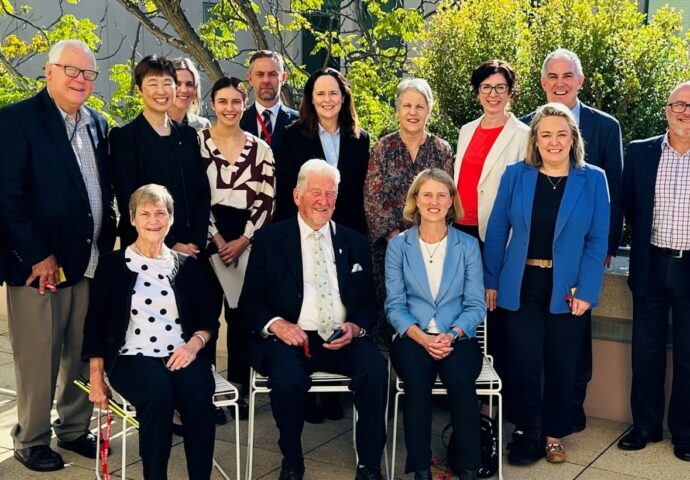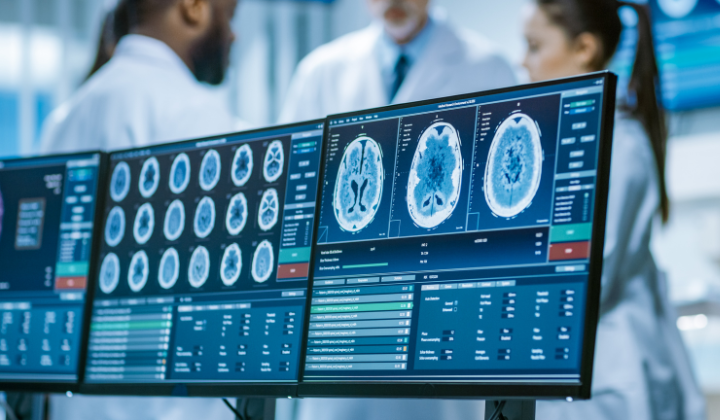Health leaders create national alliance to end Parkinson’s
The Australian
Major breakthroughs in identifying faults in genes that cause Parkinson’s disease have placed the world on the precipice of effective treatments for the neurodegenerative condition whose prevalence is increasing at a faster pace of any similar disease.
Australia has joined a worldwide project led by the Michael J Fox Foundation to comprehensively map the genes that cause Parkinson’s, a common brain disorder that can impair a person’s ability to move and speak, with a particular focus on studying the genes of disadvantaged people from a variety of ethnic backgrounds who have never been studied before, to find commonalities in gene mutations.
The international project, known as the Global Parkinson’s Genetics Program, is set to radically accelerate the prevention and treatment for Parkinson’s disease, which affects 220,000 Australians and is the most common neurogenerative disease next to Alzheimer’s.
“Parkinson’s disease is a complex disease process, there are many things that go wrong with cells,” said Professor Carolyn Sue, Kinghorn Chair of Neurodegeneration at the Australian institute NeuRA. “Genomics provides that sort of diagnostic process by which you can find out what the causes of Parkinson’s disease are.
Hollywood actor Michael J Fox suffers from Parkinson’s disease and leads a charity which has bankrolled extensive worldwide research into the neurodegenerative condition.
“We’re on the verge of the next wave of diagnostic and treatment discoveries as we are able to investigate the entire genetic background of multiple different populations.”
As Australia joins the international genetics effort, leading Parkinson’s organisations have now joined forces to call for government support and a co-ordinated approach to end the neurodegenerative disease that has been long neglected on the public agenda.
The organisations have come together to establish the National Parkinson’s Alliance, holding the first Australian Summit to End Parkinson’s in Canberra on Tuesday. They urged the Federal Government to allocate an initial $400,000 for the development of a National Parkinson’s Action Plan.
Associate Professor Michele Callisaya, a physiotherapist and researcher who is also living with early-onset Parkinson’s, said the establishment of the National Parkinson’s Alliance is a huge step forward, but Government support is vital.
“Parkinson’s is one of the most challenging diseases to manage due to its chronic progressive nature, insidious onset, complicated and diverse motor and non-motor symptoms,” Associate Prof Callisaya said.
“Parkinson’s has received far too little attention for far too long. We need a united front and the support of Government to combat this devastating disease and improve the lives of those affected.”
The Alliance is made up of the charity Shake It Up Australia Foundation, and the organisations Fight Parkinson’s, Parkinson’s NSW, Parkinson’s Tasmania, the Walter and Eliza Hall Institute, NeuRA, the Queensland University of Technology and the University of Tasmania.
So far around 20 genes that contribute to the development of Parkinson’s have been identified world wide, two major genes in the past year alone. NeuRA is one of the organisations that has joined the worldwide gene discovery effort via the international collaboration Aligning Science Across Parkinson’s.
“It’s a rapid process that has taken place in the past year to find a couple of genes,” Professor Sue said. “So it’s a very exciting program with worldwide collaboration. A global effort to make genetic studies more diverse has led to a discovery about Parkinson’s disease.”
The global effort comes as Professor Sue’s team at NeuRA continue their pioneering work to on radical gene therapy intervention that promises to halt the progression of Parkinson’s disease by “recharging the batteries” of brain cells.
The NeuRA research aims to provide the brain’s the cells with a sustainable source of energy to combat the cell death that occurs in Parkinson’s disease that results from the impaired function of the dopaminergic neurons due to energy loss.






